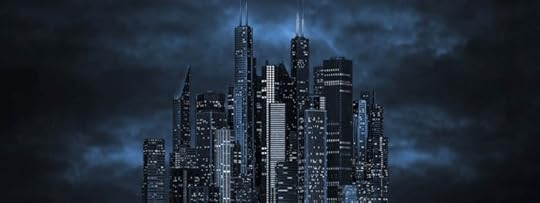David Turton's Blog
September 2, 2022
The Psychic of Sachsenhausen is available to buy
My new novel, The Psychic of Sachsenhausen, is available to buy on Kindle, in paperback and hardback.
Buy now: US
Buy now: UK
The novel is a tense supernatural tale of love and hate, pride and shame, hope and horror that builds to a harrowing finale in the dark heart of Nazi Germany.
“David Turton’s The Psychic of Sachsenhausen is haunting and compelling. Readers prepare for swarths of emotions that will tug and twist every heartstring. A beautiful and dark historical story that will leave anyone speechless and reflect deeply on the human condition. It is a sublime dedication and memoriam that reminds us to never forget.” – David Edgar Grinnell bestselling author of Ashes and Moonglade
February 5, 2022
The First Dog Walker – new short story
Issue 1 of Sunderland-based publication Holmeside Writing contains a new short story from me – The First Dog Walker.
The dark tale explores a situation where a body is found by an early morning dog walker. But who found the body first?
Read the story, plus other excellent ones by talented Sunderland writers, here:
https://holmesidewriting2021.wordpress.com/2021/12/26/259/New publisher – Curious Corvid Publishing
I have signed with US-based independent publisher Curious Corvid Publishing, who will release my second novel, The Psychic of Sachsenhausen in September 2022.
The novel, set in 1935, follows two young men who grew up in an Oslo orphanage pursuing a better life in Berlin. Garland Lund, a brilliant ballet dancer, is full of emotion, with developing psychic abilities that he doesn’t know or understand. Johan Olsen is a tough, uncompromising young man who craves to belong. Garland discovers Berlin’s city culture and explores his sexuality, while Johan finds himself a guard in Berlin’s newest prison, Sachsenhausen concentration camp. The two men are on winding paths that meet in the most violent and shocking way, as we see love and loss at the heart of Nazi Germany.
Follow Curious Corvid Publishing here:
https://www.curiouscorvidpublishing.com/
October 30, 2021
‘Bonjour Stevie’ anthology now free on Kindle
Special Halloween offer: For a limited time, my short story anthology ‘Bonjour, Stevie and Other Short Tales of Horror’ is FREE on Kindle.
Download Your Free Copy Now:
October 16, 2021
An Interview With… David Turton
An interview with yours truly – enjoy!

David Turton is an indie horror and science fiction author whose output over the last couple of years has been prolific. His debut novel The Malaise was published in December 2018, sandwiched between the publication of over 30 short stories on various platforms. His anthology of quick horror reads The Gull and Other Short Tales of Horror has received thousands of downloads. Yorkshireman David, who now lives in the North East of England, was shortlisted for the Sunderland Short Story Award 2019 and is working on his next project, The Psychic of Sachsenhausen.
What was your first book and when did you write it?My debut novel was The Malaise, a post-apocalyptic story set in the UK. It tells the story of a technologically-dependent world in the near future, which succumbs to an unexplained bout of violence and suicide, leaving only a handful of survivors who attempt to rebuild…
View original post 2,214 more words
Enjoy The Fish’rmen in Scare Street anthology
My Lovecraftian short story The Fish’rmen has been published in kindle, paperback and audiobook in Night Terrors Volume 5, by Scare Street.
The story revolves around a food reviewer who visits a mysterious island with fish n’chips to die for…
June 1, 2020
Noir from the Bar – new NHS crime thriller anthology
I’m proud to announce that my short crime story The Albatross and the Cambrio Cigarette has been published in a brand new anthology – where all profits go to the NHS.
Created by the talented people behind Noir at the Bar Newcastle, which I’ve been lucky to read at a couple of times, it features 30 short stories by some amazing writers.
October 1, 2019
October Author Events
A bit of exciting news!
Firstly, after being long-listed in 2018, I’ve been shortlisted for the Sunderland Short Story Award 2019 – in the regional category. The winners will be announced in a special event on 29 October 2019 at Sunderland Waterstones. Book your place here.
Secondly, I’m giving an author talk as part of Sunderland Libraries Literature Festival on 15 October at City Library, Sunderland. Find out more about my approach to writing The Malaise, the publication process and what else lies in store – I’ll also read out my latest story. It’s not mandatory to book a place but let me know you’re coming on Facebook!
Keep up to date with more author news on my Facebook, Twitter and Instagram.
July 20, 2019
Does fiction tell us how the world will end?
The end of the world. It’s the topic of many a best-selling novel and blockbuster film, spanning multiple genres and dating back almost two hundred years.
It’s a question that’s been asked many times: how will the world as we know it come to an end? What will eventually wipe out humankind?
The beauty of apocalyptic fiction is that we can be supplied with answers, from the highly possible to the downright strange.
Here’s seven potential causes of the apocalypse, as explored in popular fiction:
Pestilence
One of the most believable causes of the apocalypse, this was most evident in Stephen King’s epic The Stand, which also contained various supernatural elements. In The Stand, a super flu, nicknamed ‘Captain Trips’, kills 99.4% of the world’s population. The survivors combine in an ultimate battle of good vs evil.
Pestilence is also explored by Emily St John Mandel in Station Eleven where ‘Georgia Flu’ wipes out most of humankind. The earliest modern work of post-apocalyptic fiction, Mary Shelley’s The Last Man, also depicts a plague that destroys mankind.
Nuclear War
With a US president referencing his access to a nuclear button on Twitter, this cause of the apocalypse has a jarring realism to it.
Notably explored in Robert McCammon’s Swan Song and Walter M. Miller’s A Canticle for Lebowitz, there is something uniquely haunting and tragic about a landscape of scorched earth, and an ultimately human cause of the destruction of our own planet.
Zombies or Vampires
The most common cause of the end of the world in the horror genre is a supernatural plague that transforms humans into murderous, evil beings. The ‘Zombie Apocalypse’ has been portrayed in countless movies and novels, most notably 1954’s I Am Legend by Richard Mathieson and 2003’s World War Z by Max Brooks, both of which became blockbuster movies with Hollywood stars Will Smith and Brad Pitt.
The ‘Vampire Apocalypse’ was covered in terrifying fashion by Justin Cronin’s The Passage trilogy, depicting the end of the world over several centuries, as survivors battle against ‘virals’ – former humans with a taste for blood.
Natural Disaster
Movies 2012, The Day After Tomorrow and The Knowing, spectacularly portray the apocalypse after natural disasters. As with many horror and science fiction genres, this reflects the modern fears of global warming and extreme weather, with several very real disasters causing deaths around the globe.
Novels such as New York: 2140, Borne and Flight Behaviour all explore a world changed unrecognisably by climate change.
Technology
Technology has increased at an incredible rate over the last few decades, transforming the lives of human beings. Science fiction often forewarns us about the development of artificial intelligence, with the possibility that the technology that now serves us could potentially become our master.
1984 film The Terminator plots this exquisitely, depicting a future where humans and machines are at war. TV series Black Mirror also explores the potentially negative effects of technology in various dystopian near-future scenarios.
Philip K. Dick’s sci-fi classic Do Androids Dream of Electric Sheep, which was to become Blade Runner, explores a future where rebellious ‘replicant’ androids are hunted by the government. My own post-apocalyptic novel, The Malaise, shows a world where mankind has been obliterated by an unknown force, linked to the monopolisation of technology.
Alien Invasion
If the cause of the apocalypse provides one of the most compelling ‘what if’ questions we could ask, then the possibility of alien life isn’t far behind. So, what better way to tell a gripping science fiction tale than to combine the two?
H.G Wells’ The War of the Worlds set the tone for alien invasion fiction in 1898, while Michael Crichton, Arthur C. Clarke and Peter F. Hamilton have all spun stories of overlords taking over the planet. Possibly one of the favourites in this category is John Wyndham’s 1951 classic The Day of the Triffids, which depicts the reconstruction of society after a comet shower blinds most of the human race, and giant man-eating plants provide a frightening antagonist.
However the world might end, we can only speculate. But as morbid and dark as the prospect is, we can enjoy enlightening ourselves with the many great works of fiction that tackle the issue of the apocalypse.
And perhaps the cause isn’t important. As Cormac McCarthy’s The Road teaches us, what happened to cause the apocalypse doesn’t necessarily have to be specified, it is the struggle of the survivors on a ruined planet and destroyed civilization in which the real tale lies. After all, post-apocalyptic fiction always treats the end of the world as the beginning of the story, where the true compelling narrative lies in the rebuilding of humanity amid the worst possible trauma. And it’s this insight into humankind that ensures post-apocalyptic fiction will continue to thrill us for many years to come.
David Turton’s post-apocalyptic novel ‘ The Malaise’ described as ‘a thrilling and gripping mix of science fiction and horror’ is available now , published by Cosmic Egg Books.
April 17, 2019
The Malaise is 99p for a limited time
My debut post-apocalyptic science fiction horror novel The Malaise is now available on Kindle for a low price of 99p/$1.30.
The deal is only available for a limited time so download your copy now!




